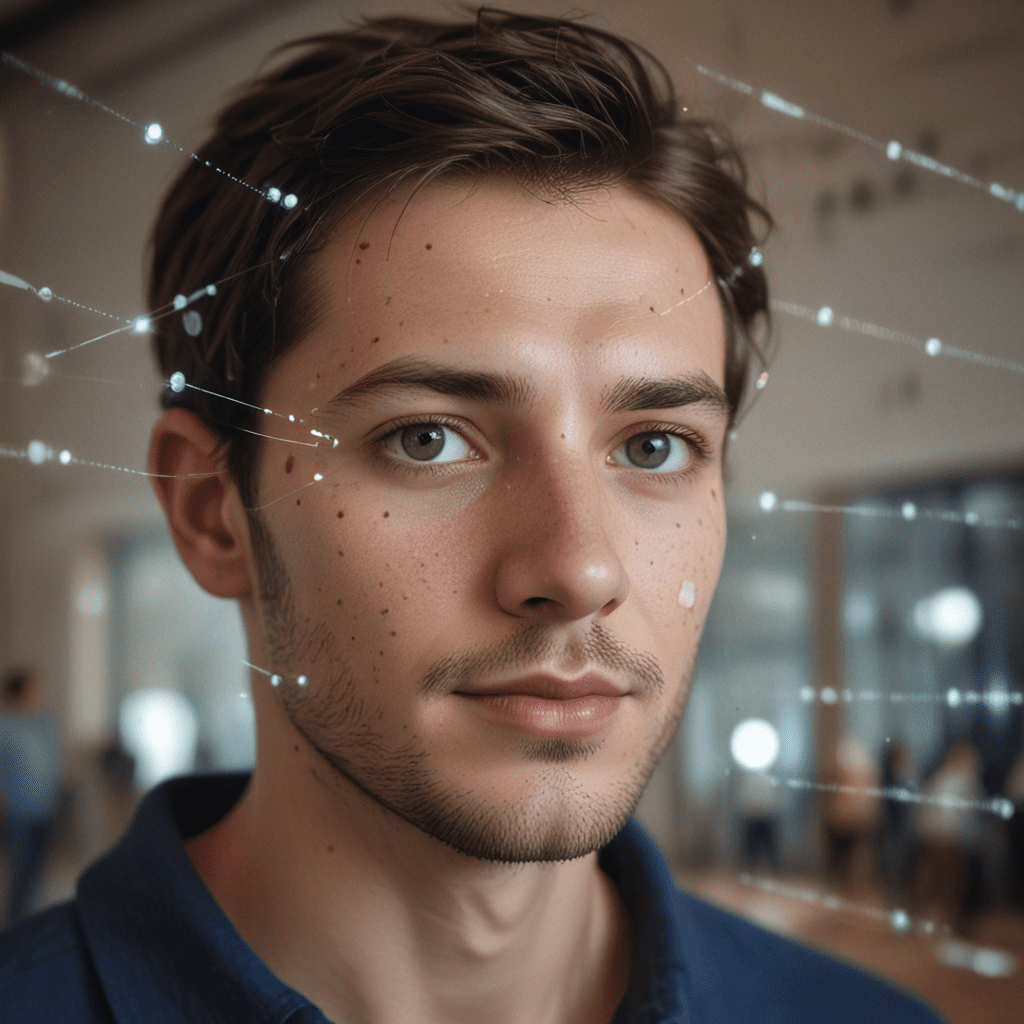## Introduction: The Dawn of Facial Recognition Technology
In an era characterized by rapid technological advancements, facial recognition technology has emerged as a game-changer in the security realm. This innovative technology has the potential to revolutionize security measures, offering enhanced surveillance capabilities and unprecedented levels of access control. As we delve into the intricate workings of facial recognition technology, its profound impact on security solutions becomes increasingly apparent.
## The Mechanics of Facial Recognition: How It Works
Facial recognition technology operates on the principle of identifying and analyzing unique facial features. It employs sophisticated algorithms to map facial characteristics, such as the distance between eyes, the shape of the nose, and the contours of the jawline. By creating a mathematical representation of an individual's face, the technology can compare it against a database of known faces, enabling accurate identification and verification.
## Applications in Security: Enhanced Surveillance and Access Control
The integration of facial recognition technology into security systems has opened up a myriad of possibilities. From enhancing surveillance capabilities in public spaces to implementing advanced access control measures in sensitive areas, this technology is transforming the way security professionals monitor and secure their environments. Its accuracy and speed make it an invaluable tool for preventing unauthorized access and detecting potential threats.
## Law Enforcement and Identification: Unlocking True Potential
Law enforcement agencies have recognized the tremendous potential of facial recognition technology in aiding investigations and identifying suspects. By leveraging vast databases of known criminals, the technology can assist in tracking down individuals involved in various offenses. Additionally, its use in missing person cases and victim identification has proven to be highly effective, providing invaluable assistance to law enforcement officers.
## Commercial Applications: Streamlining Transactions and Personalization
Facial recognition technology is not solely confined to the world of security. It has found widespread adoption in commercial applications, offering seamless and convenient solutions. From contactless payments and secure access to personalized marketing campaigns, this technology is revolutionizing the way businesses interact with their customers. Its ability to enhance customer experiences while ensuring security makes it an indispensable tool in the commercial realm.
Ethical Implications: Striking a Balance Between Security and Privacy
While the benefits of facial recognition technology are undeniable, ethical concerns have emerged regarding its potential impact on privacy. The collection and storage of facial data raise questions about surveillance and the erosion of personal freedoms. Balancing the need for security with the protection of individual privacy requires careful consideration and the establishment of clear guidelines and regulations.
Privacy Concerns and Regulations: Safeguarding Personal Data
To address the privacy concerns associated with facial recognition technology, governments and regulatory bodies are actively developing and implementing comprehensive data protection regulations. These regulations aim to ensure that personal data, including facial scans, are collected, stored, and processed ethically and securely. Compliance with these regulations is crucial for businesses and organizations using facial recognition technology.
Advancements and Future Prospects: Pushing the Boundaries of Innovation
The field of facial recognition technology is continually evolving, with ongoing advancements promising even greater accuracy and efficiency. Researchers are exploring new algorithms and machine learning techniques to improve the technology's capabilities. The integration of artificial intelligence (AI) is expected to further enhance facial recognition's effectiveness and open up new possibilities for application.
Integration with AI: Unleashing the Power of Machine Learning
Artificial intelligence (AI) is playing a transformative role in facial recognition technology. Machine learning algorithms enable facial recognition systems to analyze vast amounts of data and learn from experience, continuously improving their accuracy and performance. The integration of AI will continue to drive innovation and expand the applications of facial recognition technology.
Conclusion: Facial Recognition Technology's Impact on Security and Beyond
Facial recognition technology has emerged as a powerful tool in the field of security, offering enhanced surveillance, access control, and identification capabilities. Its applications span industries, from law enforcement to commercial use. While ethical concerns regarding privacy must be addressed, ongoing advancements and the integration of AI promise even greater accuracy and efficiency. Facial recognition technology is poised to shape the future of security solutions and drive innovation across multiple domains.
FAQs
1. Is facial recognition technology accurate?
Facial recognition technology is highly accurate and has achieved impressive results in various applications. However, accuracy can vary depending on factors such as lighting conditions, facial expressions, and the quality of the image.
2. Are there any privacy concerns associated with facial recognition technology?
Yes, privacy concerns have been raised regarding the collection and storage of facial data. To address these concerns, governments and regulatory bodies are developing comprehensive data protection regulations to ensure that personal data is handled ethically and securely.
3. How is facial recognition technology used in security?
Facial recognition technology is used in various security applications, including surveillance, access control, and identification. It enhances security by enabling real-time monitoring, preventing unauthorized access, and aiding in law enforcement investigations.
4. What are the future prospects for facial recognition technology?
Facial recognition technology is continually evolving, with ongoing advancements in algorithms and the integration of artificial intelligence (AI). These advancements promise even greater accuracy and efficiency, expanding the technology's applications in security and beyond.

